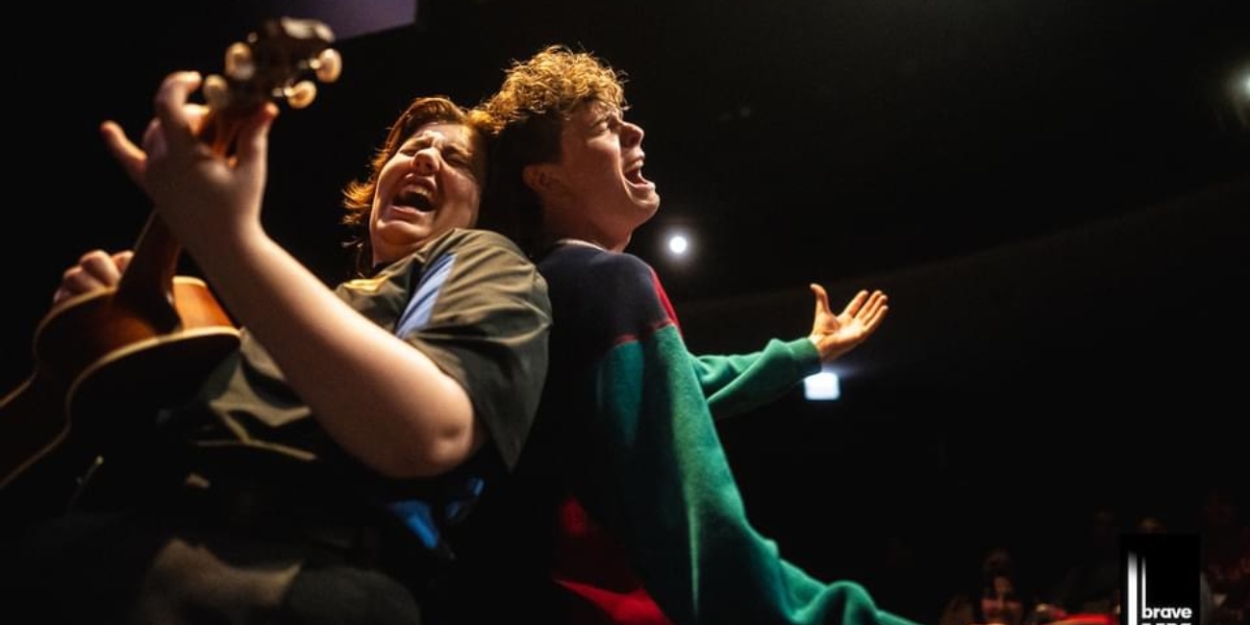Student Blog: My Experience with Loyola University Chicago's Theatre Program
A brief look into the in's and out's of my school's theatre department

When I was applying to colleges a mere three years ago, I had no intention of studying theatre. Do I regret not applying to theatre schools? Absolutely. My one piece of advice for any high school students even remotely considering a degree in the performing arts is to go out and audition for at least a couple of programs. You truly never know what could happen, and you can always change your mind - having options is the best thing you can do, and you will never regret auditioning regardless of the results. However, because I didn’t intend to study theatre, my artistic journey at Loyola has been interesting. Here are some of the most important things I wish I knew before attending the school.
First off, Loyola’s theatre program is on the smaller side. Usually, the graduating theatre class contains somewhere between twenty and thirty theatre majors. In my opinion, this is a great size; everyone gets to know each other very well and the relationships built throughout the department are very strong. One of the most important things I’ve noticed is that the theatre students at Loyola are overwhelmingly kind and supportive, and that judgement or unkindness will not be tolerated. Thus, in the social aspect, Loyola is a fantastic decision for prospective theatre students.
Another benefit of attending Loyola is that you don’t have to audition to be accepted as a theatre student. The university makes the field widely available to anyone who wishes to pursue a theatre degree. Personally, I am thankful for this option because I decided to add a theatre minor at the start of my Junior year, which is something I would not have been able to do at other universities, at least not without being set back several semesters. Loyola’s theatre degree is offered as a BA instead of a BFA, which is another pro; by offering a BA, the university ensures that their theatre students are becoming educated in every single area of the craft. Required classes include lighting and electronics, costumes, and scenic design, all of which allow for students to get hands-on experience. Another benefit of Loyola’s program is that you don’t have to major or minor in the field to audition for productions - anyone is accepted and preference is never given to any person over the other.
As for productions, Loyola generally puts on four mainstage shows every academic year, usually consisting of three plays and one musical (two in the fall, two in the spring). To make sure student voices are heard during the show selection process, the theatre department selects a small number of students every year to be on the Season Selection Committee alongside various directors and theatre faculty. The students and staff cooperate to come up with four shows to produce that reflect relevant social justice issues, promote acceptance, and also allow theatre students to have a blast on stage. As an example of a typical theatre season at Loyola, our 2022-2023 season consisted of Somewhere by Marisela Treviño Orta, Orlando by Sarah Ruhl, The Old Man and the Old Moon by Pigpen Theatre Co., and Pride and Prejudice by Jane Auston, adapted by Kaela Mei-Shing Garvin, which was the show I made my Loyola theatre debut in as Mr. Bingley! Interestingly, Loyola produces one Shakespeare show every other year, which allows for Shakespeare Studies students to become more involved in the program. To round out the year, the annual final production is the Student Directing Scenes in Loyola’s Underground Theater. Here, students enrolled in the directing capstone class are able to select ten minute scenes from a show of their choice, hold auditions, cast other students, and put on a performance all within the span of about a month. These directing scenes showcase the vast talent that exists within our program with both artistic and directorial creativity. I have participated in several of these scenes, and they are always the highlight of my year.
While Loyola’s theatre program has many pros, there are a few things I wish I could change. For one, I tend to be more involved in musical theatre productions than straight plays. However, Loyola only offers a Musical Theatre minor to students who are pursuing a Theatre major (there is no MT major offered at the school). While I understand the school’s logic behind this decision, I wish there was a way for me, someone who is studying theatre and is just as committed to the program as the theatre majors, to be able to minor in Musical Theatre as well. Along with this, I also wish the school considered putting on two musicals, even if it was every other year. This would allow extra opportunities to those who prioritize musical theatre, which I would argue is a solid percentage of students involved in the program.
Overall, Loyola University Chicago’s theatre program has so much to offer - while I wish more people knew about how special the program is, it almost makes it more special that it's not talked about as often as other similar programs because of how tight-knit and underground the community remains. If you are unsure of what career you want to pursue, if you want a well-rounded theatrical education, or if you simply want to participate in college theatre without having to major in it, Loyola University Chicago may be the school for you!
Comments

Videos


